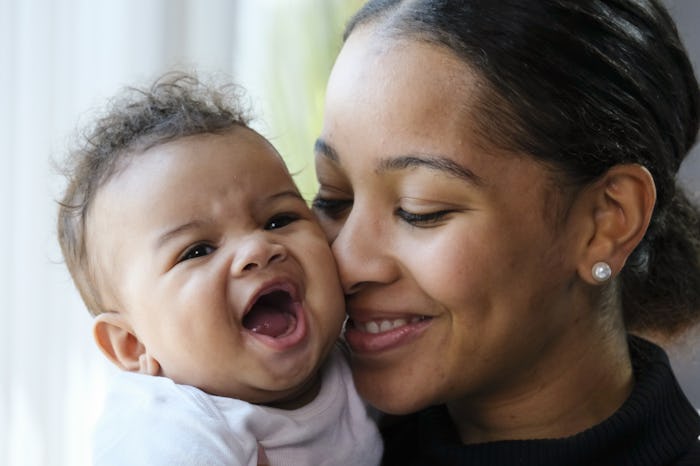Life
Science Says Adolescence Doesn’t End Until 25, & Here’s What That Means For Parents
When I was 24 years old, I was shelling out money for a one-bedroom apartment in South Brooklyn during the days when the average rent for the outer boroughs was around a grand (oh, what an innocent world back then). I was finishing up my undergraduate studies, working two jobs, and struggling to eat. I'd hardly call my young adult self an adolescent, but that doesn't mean experts agree. In fact, science now says adolescence doesn't end until 25. I can't help but wonder what that shift would mean for parents.
A team of Australian researchers write in an opinion piece published Wednesday in the journal Lancet Child & Adolescent Health that the age of adolescence should start at 10 years old — when puberty typically begins — and extend to 24 years old. In their paper, the researchers argue that young adults are hitting traditional milestones later in life, suggesting a "semi-dependency" that should change how adolescence is viewed, according to BBC News.
Lead author Susan Sawyer, director of the centre for adolescent health at the Royal Children's Hospital in Melbourne, writes in the piece,
Although many adult legal privileges start at age 18 years, the adoption of adult roles and responsibilities generally occurs later.
She continued, according to BBC News,
The ages of 10-24 years are a better fit with the development of adolescents nowadays.
Currently, health experts consider the end of adolescence to start at 18 years old, according to Psychology Today, with a four-year period of adjustment. If adolescence were to now end at age 24, that means this period of adjustment (considered by psychologists as the "trial independence" phase) would end around 29 years old. I don't know about you, but that's a ridiculous jump.
The researchers are right that adults are reaching "milestones" at later ages (you know, marriage, parenting, owning a home — all those things that are not economically feasible for most of our generation before 35 years old). Statistics show that more people ages 18 to 29 are single nowadays — 64 percent in 2014 compared to 52 percent in 2004, according to Refinery29. And sure, the average age women had their first child was 24.9 in 1999 and jumped to 26.3 in 2014, according to NPR.
But delaying major life events doesn't mean you are any less of adult with independent responsibilities. Nor does it mean you are not reaching those milestones before 24 years old.
My younger sister, who turns 29 years old on Saturday, had her first child at that age. She was married in her early 20s. I had my son at 32 years old. I am not nor have I ever been married; in fact, I just ended a 12-year relationship over the summer. The ways in which a person lives their life and meets "milestones" looks different for every-single-body.
Sure, there are benefits to expanding adolescence. As Sawyer wrote in her Lancet Child & Adolescent Health paper, upping the age of adolescence could mean expanding policies that would better support young adults. That means easier access to social services and care that are often denied to young adults in need because of the year that they were born.
But ageism is still a thing. It affects older and younger people alike. Therefore expanding adolescence would treat a young parent's "desire for independence" as abnormal or unhealthy, Dr. Jan Macvarish, a parenting sociologist at the University of Kent, told BBC News.
Macvarish added,
Older children and young people are shaped far more significantly by society's expectations of them than by their intrinsic biological growth. There is nothing inevitably infantilizing about spending your early 20s in higher education or experimenting in the world of work.
I don't know about, but 24 years old is hardly an immature age. And it shouldn't be treated as one.
Check out Romper's new video series, Romper's Doula Diaries:
Watch full episodes of Romper's Doula Diaries on Facebook Watch.
